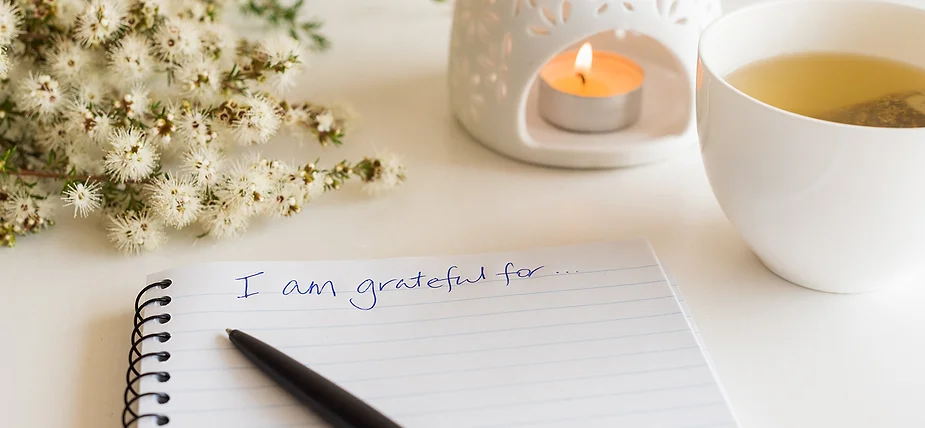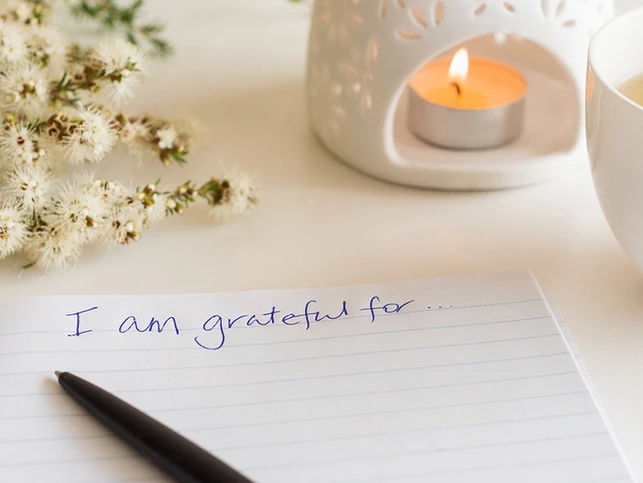If you’d prefer to watch rather than read, here’s the video for this topic by Alex 🙂
Self care is about protecting your own well being and taking care of your mental health. There are so many ways to take care of ourselves and one simple way is practicing gratitude.
We all know the word but what does gratitude really mean? It’s simply about being thankful for all the things given to you whether it’s tangible (stuff) or intangible (things like kindness). When we can feel grateful, it can feel like a connection with something greater than ourselves – whether that’s other people, nature or a higher power.
So how can we make that connection to gratitude and as a result, our own well being? Well,
Dr. Robert Emmons and Dr. Michael McCallough have both done research on gratitude journaling and the benefits of this simple technique. They asked different groups of people to write down certain things at the end of each day. One group wrote down what they were grateful for, another wrote what ticked them off in the day and the third group wrote down neutral events. After ten weeks of practicing this type of journaling each day, the participants who had written down things they were grateful for, were more optimistic and felt better about their lives.

Now if you’re thinking gratitude journaling sounds a bit ‘self help-ish’, keep in mind that positive psychology is all about helping our well being by focusing on what’s going well rather than focusing on problems we face. There’s lots of research that shows how we do better emotionally and mentally when we focus on the positive.
There are a few ways to try gratitude journaling but the most important part is to be consistent. It may feel awkward at first but sticking with it helps it become an easy habit and on days when you’re lacking inspiration, reading through past entries can be helpful in why you’re doing this in the first place. There is no right or wrong way to journal but if you’re wondering how to start, here are a few ideas:
- Write 2-3 things that went well each day and why they went well. They don’t have to be earth shatteringly significant (eg. I got to eat cake today) but they could be important (eg. I got a promotion). The additional why (eg. because I let myself have a treat or I worked really hard and proved myself) helps you give yourself a pat on the back, too.
- If every day is not your thing, choose 1-2 days a week to reflect on what your life would be like without certain blessings, rather than just tallying up all the good things. Pick days when you find yourself usually being particularly low. I often pick Mondays 🙂
- If you want to do it just once a week, try to record the things that were unexpected or surprising (but good!) as these are the ones that often make us feel more gratitude.
- Choose quality over quantity. For some people, it’s more one significant thing than many superficial things. Only you know what will work for you but if you’re not sure, try choosing 1 thing to elaborate on for a month and then try choosing multiple things but in less detail for a month. Then determine which made you feel better.
Don’t worry about getting a fancy notebook or having amazing spelling or grammar. It’s your journal and you get to decide what it looks like and what works best for you. The important thing is to be consistent with it and filling it with reflections of gratitude.

Or consider having a gratitude jar instead of keeping a journal. It’s a very similar concept: you write out what you’re grateful for and why, but instead of putting it into a journal, you put in on a slip of paper and put those pieces of paper into a clear jar. You keep adding to your jar on a daily or however-often-you-want-to, basis. As the jar fills, it’s a visual reminder of all the great things you have in your life or all the things you’ve been grateful for. When you’re feeling low, pick out some of those slips of paper and reflect on the positive 🙂



